Insider Tips for Sourcing Quality Products from Indonesia: A Comprehensive Guide
Indonesia is a country with a diverse and rich manufacturing sector that offers a wide range of high-quality products suitable for various industries. However, sourcing products from Indonesia can be a daunting task for businesses due to the complexity of logistics, language barriers, and cultural differences. Therefore, it is essential to have insider tips to help businesses navigate the Indonesian market and establish reliable contacts for sourcing quality products.
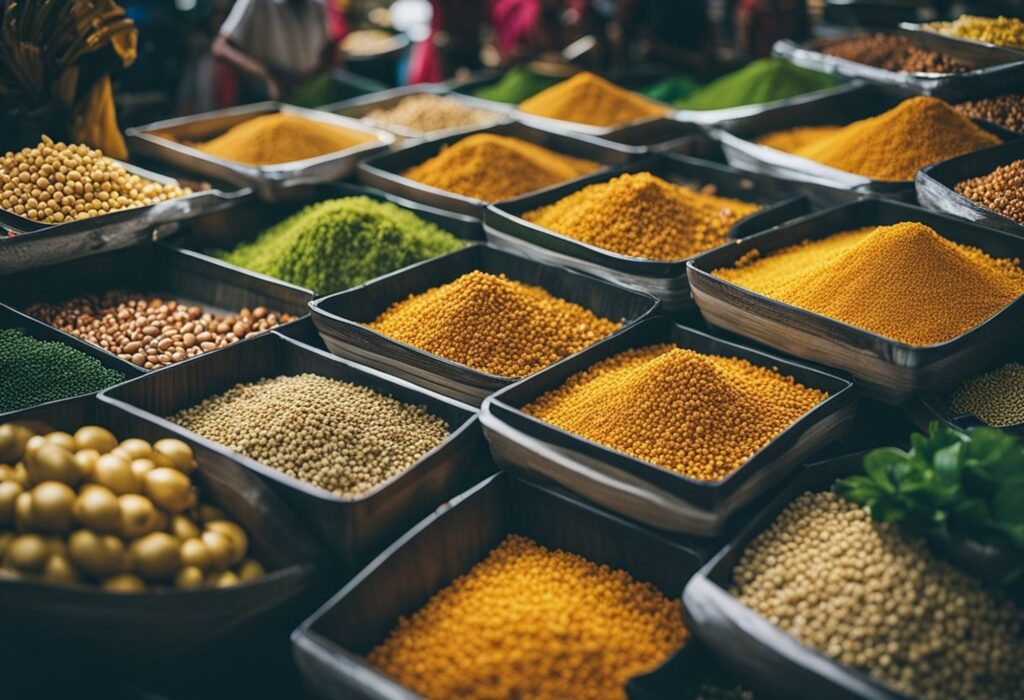
Understanding the Indonesian market is crucial for businesses looking to source products from the country. Indonesia has a young and growing population with a strong middle class, making it an attractive market for businesses looking to expand their customer base. However, it is important to note that Indonesia is a diverse country with different cultures, languages, and customs. Therefore, businesses need to research and understand the local market to ensure that their products are suitable for the Indonesian market.
Establishing reliable contacts is essential for businesses looking to source quality products from Indonesia. It is recommended that businesses work with experienced and reputable sourcing agents or manufacturers who have a good understanding of the local market and can provide guidance on logistics, quality control, and compliance. Building relationships with local suppliers and attending trade shows can also help businesses establish reliable contacts for sourcing quality products from Indonesia.
Key Takeaways
- Understanding the Indonesian market is crucial for businesses looking to source products from the country.
- Establishing reliable contacts is essential for businesses looking to source quality products from Indonesia.
- Quality control, compliance, and logistics are important factors to consider when sourcing products from Indonesia.
Understanding the Indonesian Market
Indonesia is the largest economy in Southeast Asia and the fourth-most populous country in the world. With a growing middle class and rising disposable income levels, Indonesia’s market offers opportunities across many sectors. However, to succeed in sourcing quality products from Indonesia, it is important to understand the cultural nuances and economic landscape of the country.
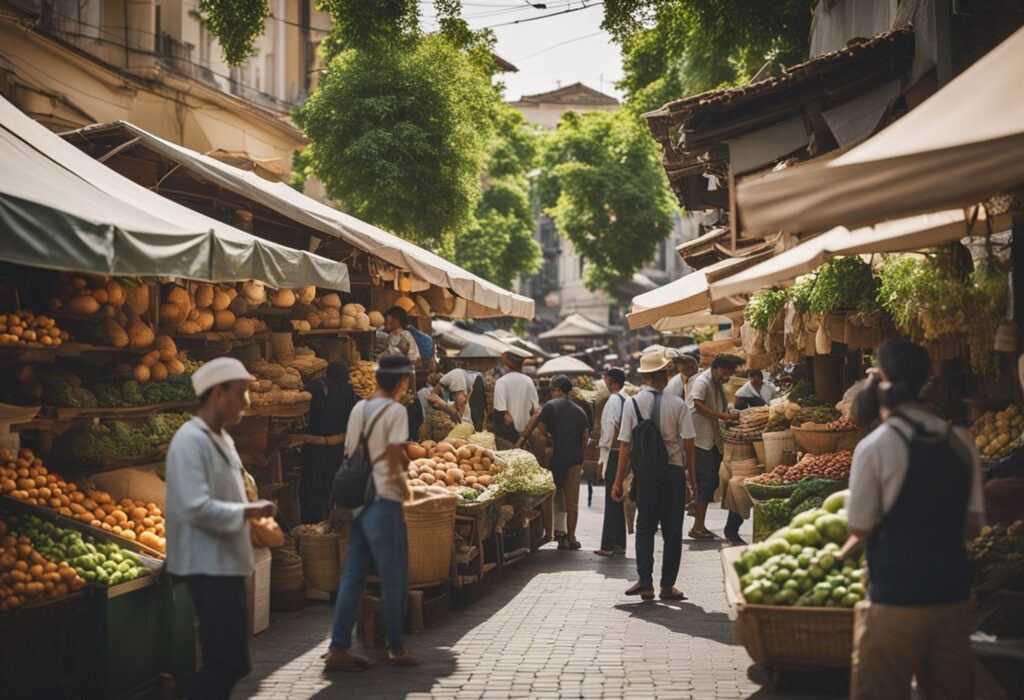
Cultural Nuances in Business
Indonesia is a diverse country with over 300 ethnic groups, each with its own language and culture. Building relationships and trust is crucial in Indonesian business culture. It is common for business partners to spend time getting to know each other before discussing business matters. Indonesians value politeness and respect, so it is important to use formal titles and greet people with a smile.
Gift-giving is also an important part of Indonesian business culture. It is customary to bring a small gift when meeting someone for the first time or when visiting someone’s home. However, it is important to avoid giving items that are too expensive, as this may be seen as a bribe.
Economic Landscape for Sourcing
Indonesia’s economy is supported by competitive labor costs, abundant natural resources, and a growing middle class. The country is a major producer of textiles, apparel, furniture, electronics, automotive parts, building materials, and handicrafts. However, sourcing quality products from Indonesia can be challenging due to the country’s complex and evolving challenges for consumer-packaged-goods (CPG) companies.
To navigate the Indonesian market successfully, it is important to conduct market research and understand consumer behavior and preferences. Indonesia is urbanizing quickly, and while the top 10 cities contribute 55 percent of GDP, five smaller cities emerge as “hidden gems” in terms of their consumption potential. By 2030, 71 percent of Indonesians will live in cities, and the urban contribution to the country’s total GDP will increase from 74 percent today to 86 percent.
In conclusion, understanding the cultural nuances and economic landscape of Indonesia is crucial for sourcing quality products from the country. Building relationships and trust, gift-giving, and conducting market research are important steps to succeed in the Indonesian market.
Establishing Reliable Contacts

When sourcing products from Indonesia, it’s essential to establish reliable contacts to ensure quality products and timely deliveries. Here are two ways to establish reliable contacts:
Networking and Relationships
Networking and building relationships with suppliers and manufacturers is crucial. Attend trade shows and events to meet potential suppliers and establish relationships. Take the time to learn about their products, manufacturing processes, and quality control measures. Building a strong relationship with your suppliers can also help you negotiate better prices and ensure timely delivery of your products.
Trade Shows and Local Events
Attending trade shows and local events is an excellent way to meet potential suppliers and manufacturers. Indonesia is home to several trade shows and events, such as the Indonesia International Furniture Expo, the Indonesia International Motor Show, and the Indonesia International Textile and Garment Expo. These events provide an opportunity to meet with suppliers, learn about their products, and establish relationships.
Overall, establishing reliable contacts is crucial when sourcing products from Indonesia. By building relationships with suppliers and attending trade shows and events, you can ensure quality products and timely deliveries.
Quality Control and Compliance
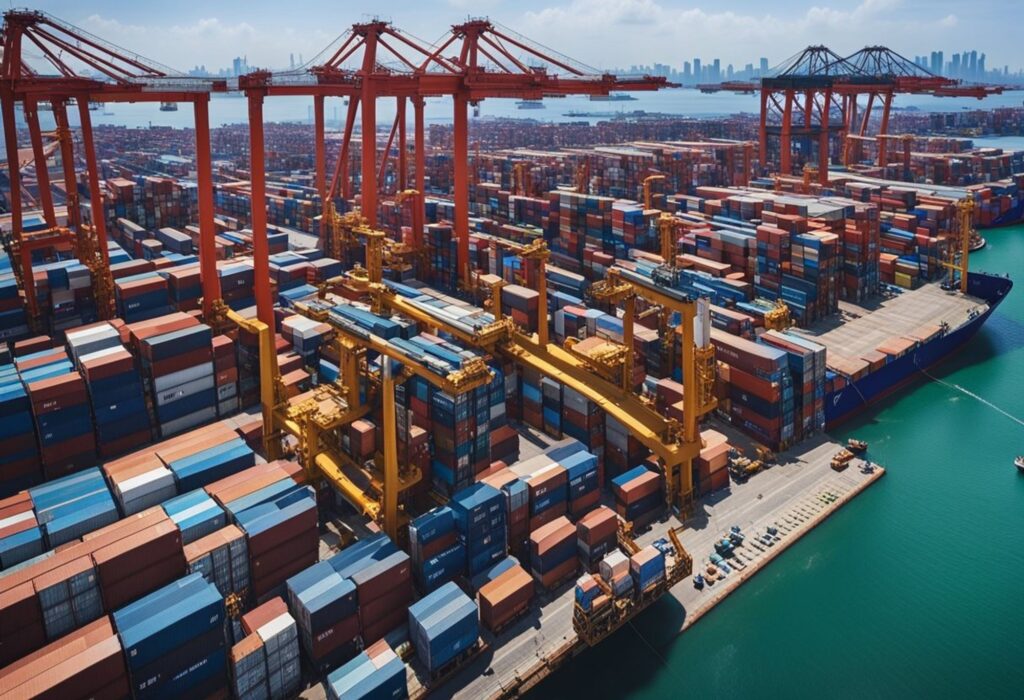
Product Standards and Regulations
When sourcing products from Indonesia, it’s important to ensure that they meet the necessary quality standards and comply with relevant regulations. Indonesia has regulations in place to ensure that products are safe for consumers and meet certain quality standards. These regulations are enforced by the Indonesian government through various agencies such as the Ministry of Industry, Ministry of Trade, and the National Standardization Agency (BSN).
One of the most important regulations to be aware of is the Indonesian National Standard (SNI). SNI is a mandatory certification system that covers a wide range of products, including food, textiles, electronics, and construction materials. SNI certification ensures that products meet certain safety and quality standards, and it is required for all products sold in Indonesia.
In addition to SNI, there are other regulations that may apply to specific products. For example, the Ministry of Health regulates food and beverage products, while the Ministry of Transportation regulates automotive products. It’s important to research and understand the relevant regulations for the products you are sourcing to ensure compliance.
Conducting Audits and Inspections
To ensure that products meet the necessary quality standards and comply with regulations, it’s important to conduct audits and inspections of suppliers and factories. There are various types of audits and inspections that can be conducted, including factory audits, product inspections, and social compliance audits.
Factory audits are conducted to assess the supplier’s production capabilities and quality management system. This includes assessing the factory’s facilities, equipment, and processes to ensure that they are capable of producing high-quality products. Product inspections are conducted to ensure that the finished product meets the necessary quality standards and complies with regulations.
Social compliance audits are conducted to ensure that suppliers are complying with labor laws and ethical standards. This includes assessing the supplier’s working conditions, labor practices, and environmental impact. Social compliance audits can help ensure that suppliers are treating their workers fairly and ethically, and can help mitigate the risk of negative publicity or legal action.
Overall, conducting audits and inspections can help ensure that products meet the necessary quality standards and comply with regulations. It’s important to work with reputable suppliers and conduct regular audits and inspections to ensure ongoing compliance.
Logistics and Shipping
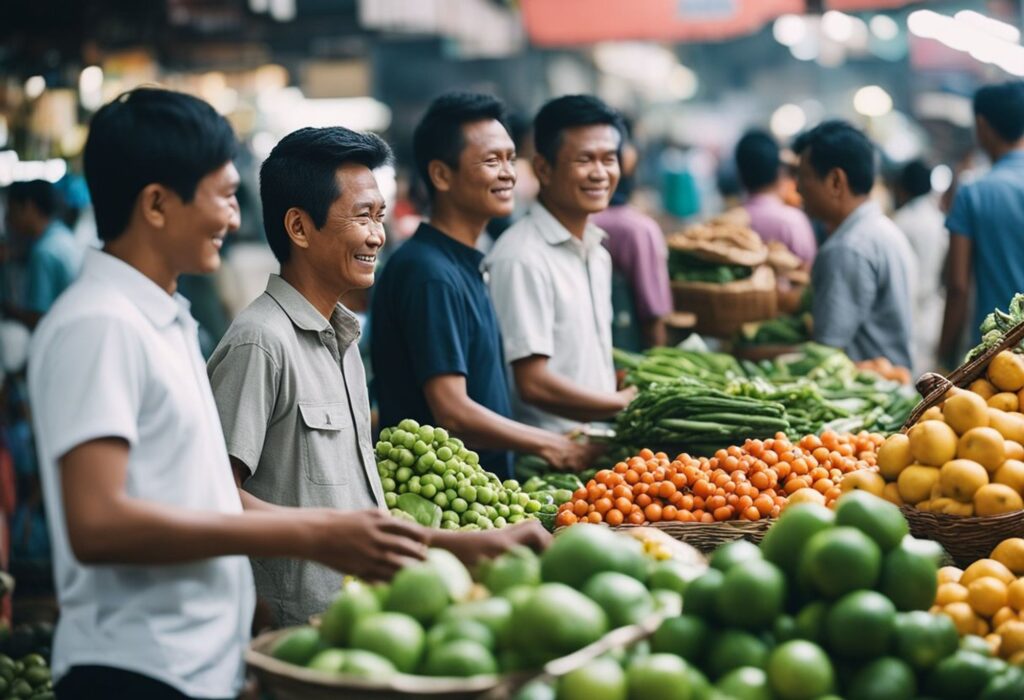
Customs and Import Duties
When sourcing products from Indonesia, it is important to be aware of the customs and import duties that may apply. These fees can vary depending on the type of product and its value. It is recommended to work with a customs broker who can assist with navigating the import process and ensure that all necessary documentation is in order.
Additionally, it is important to be aware of any restrictions or regulations that may apply to the product being imported. For example, certain products may require special permits or certifications in order to be imported legally. It is important to research these requirements in advance to avoid any potential issues or delays.
Choosing the Right Shipping Partner
Choosing the right shipping partner is crucial when sourcing products from Indonesia. It is important to work with a reliable and experienced logistics provider who can ensure that your products are transported safely and efficiently.
When selecting a shipping partner, it is important to consider factors such as shipping times, costs, and tracking capabilities. It is also important to ensure that the shipping provider has experience working with Indonesian customs and is familiar with any regulations or requirements that may apply to your products.
By working with a reputable shipping partner and being aware of the customs and import duties that may apply, businesses can ensure that their products are delivered on time and in compliance with all necessary regulations.
Negotiation Strategies
When it comes to sourcing quality products from Indonesia, negotiation strategies play a crucial role in ensuring a successful outcome. Here are some key negotiation strategies to keep in mind:
Cultural Considerations in Negotiation
In Indonesia, building a relationship with the supplier is key to successful negotiations. Therefore, it is important to take cultural differences into consideration when negotiating. For example, Indonesians value politeness and respect, so it is important to remain calm and avoid confrontational behavior during negotiations.
Additionally, Indonesians tend to focus on long-term relationships rather than short-term gains. Therefore, it is important to approach negotiations with a mindset of collaboration and mutual benefit. Building trust and rapport with the supplier can lead to a more successful negotiation outcome.
Cost Optimization Tactics
When negotiating with suppliers in Indonesia, it is important to keep cost optimization tactics in mind. For example, consider bundling orders to receive discounts or negotiating for longer payment terms to improve cash flow.
Another tactic to consider is requesting a sample or prototype before placing a larger order. This can help to ensure that the product meets quality standards and avoid costly mistakes down the line.
Finally, it is important to keep in mind that price is not the only factor to consider when negotiating. Other factors such as delivery times, quality, and customer service should also be taken into account when evaluating potential suppliers.
By keeping these negotiation strategies in mind, companies can successfully source quality products from Indonesia while building strong relationships with suppliers.
Frequently Asked Questions
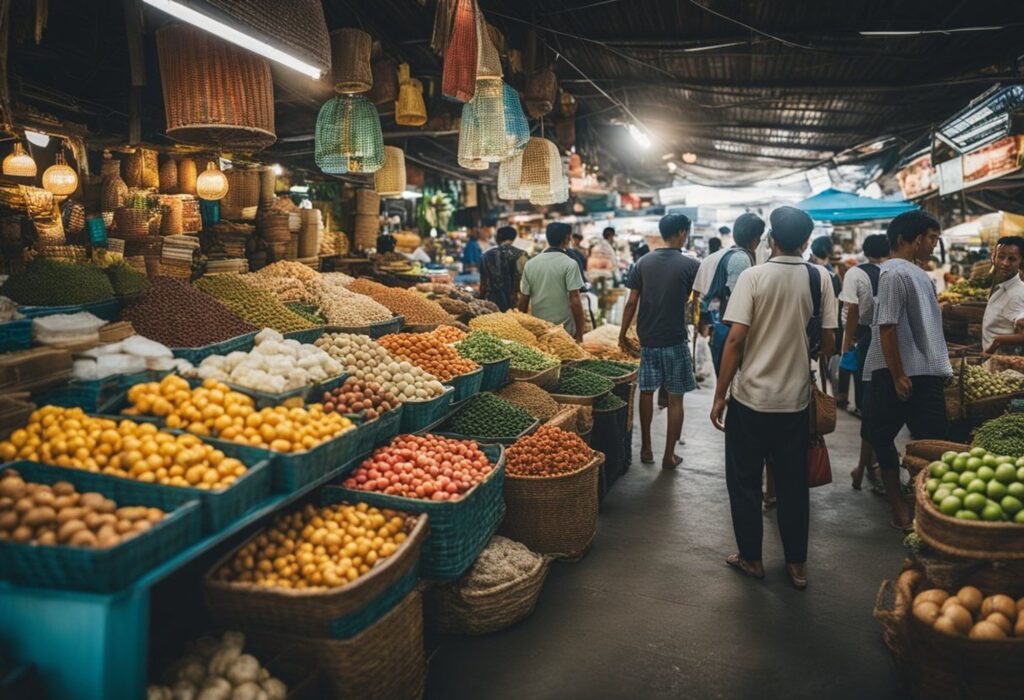
How can businesses ensure the quality of textiles when sourcing from Indonesian manufacturers?
When sourcing textiles from Indonesian manufacturers, businesses should conduct thorough due diligence on potential suppliers. This includes reviewing their track record, certifications, and quality control processes. Businesses should also request samples of the textiles they are interested in purchasing and have them tested by a reputable third-party laboratory to ensure they meet their quality standards.
What are the best practices for conducting due diligence on Indonesian suppliers?
To conduct due diligence on Indonesian suppliers, businesses should start by verifying their business registration, tax identification, and other legal documents. They should also review the supplier’s history, reputation, and financial stability. Additionally, businesses should request references from the supplier’s previous customers and conduct site visits to their production facilities.
Which Indonesian regions are known for high-quality manufacturing in specific industries?
Indonesia has a diverse manufacturing sector with different regions specializing in different industries. For example, West Java is known for its textile and garment manufacturing, while Central Java is known for its furniture and handicrafts. Bali is known for its artisanal products, while East Java is known for its automotive and electronics industries.
What are the key factors to consider when negotiating with Indonesian product suppliers?
When negotiating with Indonesian product suppliers, businesses should consider factors such as pricing, payment terms, delivery times, and quality control standards. They should also be aware of cultural differences and communication barriers that may affect the negotiation process.
How do import regulations affect the sourcing of goods from Indonesia?
Import regulations can have a significant impact on the sourcing of goods from Indonesia. Businesses should be aware of the specific regulations governing their industry and product type, including tariffs, quotas, and labeling requirements. They should also work with a reputable customs broker to ensure compliance with all relevant regulations.
What strategies should companies employ to maintain strong relationships with Indonesian manufacturers?
To maintain strong relationships with Indonesian manufacturers, companies should prioritize communication and transparency. This includes providing clear specifications and expectations for products, maintaining open lines of communication, and addressing any issues or concerns promptly and professionally. Companies should also consider establishing long-term partnerships with their suppliers and investing in their success.
Crack the Code with Buyamia: Insider Secrets to Sourcing Top-Quality Products from Indonesia!
Gain exclusive access to expert strategies and tips for sourcing the finest products from Indonesia. Elevate your business with valuable insights and industry know-how. Click here to unlock our guide and transform your sourcing process today!

Leave a Reply